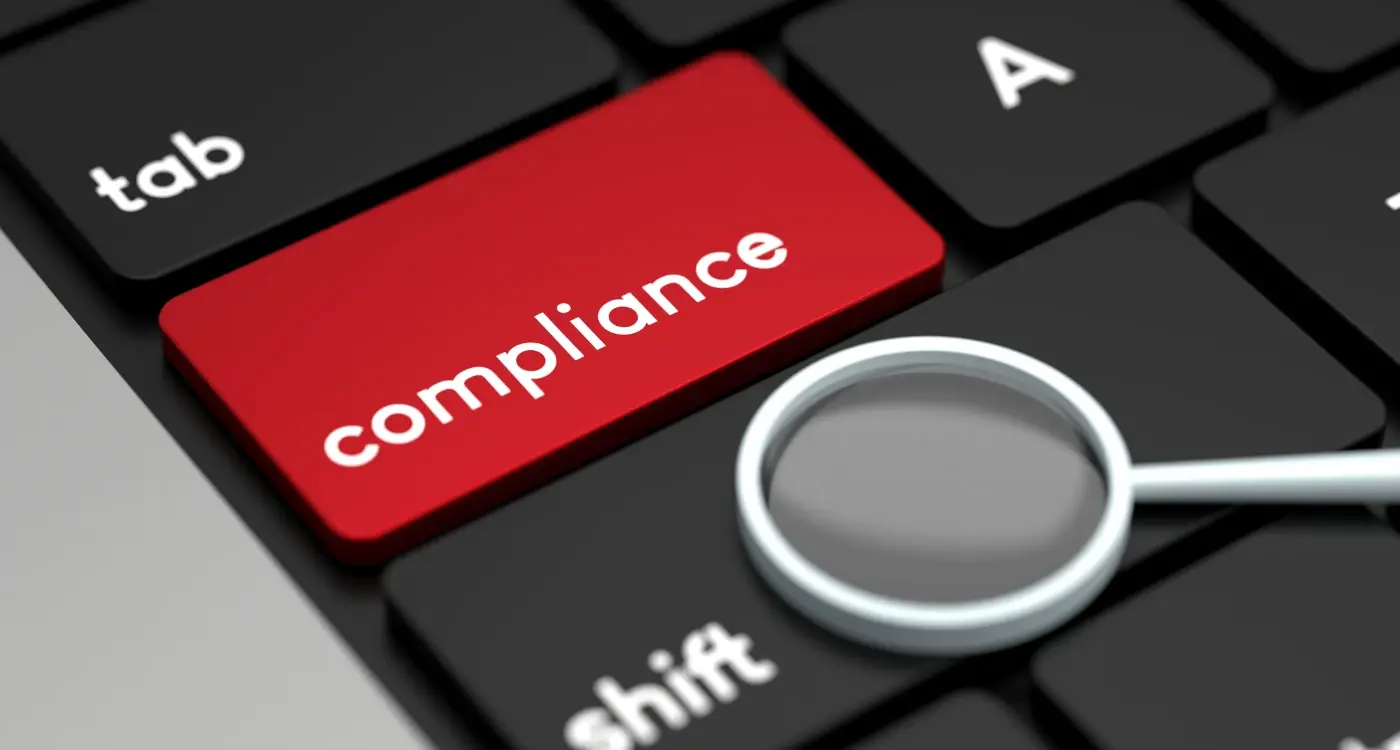What Insurance Do I Need for a Healthcare App Business?
Every year, thousands of healthcare apps fail not because of poor design or lack of users, but because their creators never properly protected themselves against the unique risks that come with building medical technology. The moment you decide to create a medical app—whether it's a simple symptom tracker or a complex telemedicine platform—you're entering a world where a single bug, data breach, or misdiagnosis could cost you everything. I've worked with healthcare startups that thought they could skip the insurance conversation until later, only to find themselves facing lawsuits that could have been easily covered with the right liability coverage in place.
Building a healthcare app isn't like creating a gaming app or social media platform. You're dealing with people's health, sensitive medical data, and regulatory requirements that change faster than you can keep up with. The risks are real, and they're expensive. That's why understanding business protection for your medical app isn't just smart—it's absolutely necessary for survival.
The cost of proper insurance is always less than the cost of not having it when something goes wrong
This guide will walk you through the different types of insurance you need to consider for your healthcare app business. We'll cover everything from professional indemnity to cyber security insurance, helping you build a safety net that protects both your company and your users. Because at the end of the day, the best app is one that's still running tomorrow.
Understanding Healthcare App Liability Risks
Building healthcare apps comes with unique risks that other app developers simply don't face. I've worked on plenty of medical applications over the years, and let me tell you—the stakes are much higher when you're dealing with mobile health technology and people's wellbeing.
The biggest risk? Getting sued if your app gives wrong medical advice or fails when someone needs it most. Imagine if your symptom checker app tells someone their chest pain is just indigestion, but it's actually a heart attack. Or if your medication reminder app crashes and someone misses their insulin dose. These aren't just annoying bugs—they're potential lawsuits waiting to happen.
Data Breaches and Privacy Violations
Healthcare apps collect incredibly sensitive information. Patient records, medical histories, prescription details—all of this is high value data for hackers. One data breach could expose thousands of patients' private information, leading to massive fines and legal action. The penalties for mishandling medical data are severe, and rightly so.
Regulatory Compliance Failures
Healthcare apps must follow strict regulations. If your app doesn't comply with medical device regulations or data protection laws, you could face hefty fines and be forced to shut down. What's worse is that these regulations change frequently, so staying compliant is an ongoing challenge that requires constant attention and resources.
Professional Indemnity Insurance for Medical Apps
When you're running a medical app business, professional indemnity insurance becomes your safety net against claims of professional negligence or errors in your service. This type of liability coverage protects you when someone argues that your app gave incorrect medical information, failed to work properly, or caused harm through professional mistakes.
Medical apps face unique challenges that other apps don't—people rely on them for health decisions, and any mistakes can have serious consequences. Professional indemnity insurance covers legal costs and compensation if a user claims your app's advice was wrong, your algorithms were faulty, or your professional services caused them harm.
What Professional Indemnity Covers
- Claims of negligent advice or incorrect medical information
- Software errors that lead to misdiagnosis or treatment delays
- Breach of professional duty or failure to meet industry standards
- Loss of documents or data that affects patient care
- Defamation claims related to professional services
The coverage amount you need depends on your app's complexity and user base. Simple wellness apps might need lower coverage than diagnostic tools or apps that integrate with medical devices. Most insurers offer policies starting from £100,000, but medical app businesses often need £1 million or more for adequate business protection.
Always inform your insurer about any app updates or new features—changes in functionality can affect your coverage requirements and policy terms.
Public Liability Coverage for Healthcare Businesses
Right, let's talk about public liability insurance—something that might seem straightforward but gets quite interesting when you're running a healthcare app business. This type of cover protects you if someone gets hurt or their property gets damaged because of your business activities. Simple enough, right? Well, not quite when you're dealing with health apps.
Now, you might be thinking "but my app just sits on someone's phone—how can it cause physical injury?" Fair point, but public liability extends beyond just physical accidents. If your app malfunctions during a patient consultation and causes delays that lead to additional costs or complications, that could fall under public liability. The lines get blurry fast in our industry.
What Public Liability Covers for Healthcare Apps
- Third-party injury claims related to your app's operation
- Property damage during client meetings or demonstrations
- Legal costs and compensation payments
- Cover for incidents at your business premises
- Protection during off-site work or consultations
Most healthcare app businesses need coverage between £1-6 million. The amount depends on your client base and the nature of your app—patient-facing apps typically need higher coverage than administrative tools. Don't scrimp on this; medical negligence claims can be substantial, and even peripheral involvement can prove costly.
Data Protection and Cyber Security Insurance
When you're running a medical app business, you're handling some of the most sensitive information imaginable—patient health records, personal details, payment information. This makes you a prime target for cybercriminals who know this data is worth serious money on the dark web. Data protection and cyber security insurance isn't just nice to have; it's becoming a business necessity.
This type of insurance covers the costs when things go wrong with your data security. We're talking about breach notification costs, credit monitoring for affected patients, legal fees, and those hefty regulatory fines that can come from bodies like the ICO. The coverage also extends to business interruption costs if your systems go down and you can't operate normally.
What Cyber Insurance Actually Covers
Most policies will cover first-party costs like forensic investigations, system restoration, and data recovery. Third-party coverage handles lawsuits from patients whose data was compromised. Some insurers even provide access to specialist cyber security teams who can help you respond to incidents quickly.
The average cost of a healthcare data breach is significantly higher than other industries, making cyber insurance a critical component of any medical app's liability coverage strategy
The tricky bit is that cyber insurance requirements vary massively between insurers. Some want to see specific security measures in place before they'll even quote you. Others offer better rates if you can demonstrate robust security policies and business protection measures. Shop around and be honest about your current security setup—lying on your application will only cause problems later when you need to claim.
Product Liability Insurance for Medical Applications
Product liability insurance is something that catches many healthcare app developers off guard—but it really shouldn't. When you're building an app that people use to track their blood pressure, monitor their heart rate, or manage their medication, you're creating a product that could potentially cause harm if something goes wrong. I've worked with medical app developers who thought their disclaimers would protect them, only to discover that wasn't nearly enough.
This type of insurance covers you if your app malfunctions and causes injury or financial loss to a user. Say your diabetes tracking app gives incorrect insulin dosage suggestions due to a bug in your code—that's exactly when product liability insurance becomes your lifeline. The policy covers legal costs, compensation payments, and defence expenses if someone sues you for damages caused by your product.
What Product Liability Insurance Covers
- Software bugs that lead to incorrect medical advice or calculations
- App crashes during critical health monitoring situations
- Faulty algorithms that provide dangerous health recommendations
- Integration failures with medical devices or other health systems
- User interface problems that cause medication errors
The premiums vary wildly depending on your app's complexity and risk level. A simple step counter will cost far less to insure than an app that provides treatment recommendations. Most insurers want to see your testing procedures, clinical validation, and regulatory approvals before they'll even quote you.
Directors and Officers Insurance for Healthcare Companies
Running a healthcare app business means you're making decisions that could affect thousands of users' wellbeing. That's a big responsibility—and with it comes some serious risks for you personally as a director or officer of the company.
Directors and Officers (D&O) insurance protects the people who make the big decisions in your medical app business. This covers things like lawsuits from shareholders, regulatory investigations, and claims about mismanagement. When you're dealing with health data and medical advice, these risks become even more real.
What D&O Insurance Covers
The coverage typically includes legal fees, settlements, and judgments if someone sues you personally for decisions you made as a company leader. For healthcare apps, this might cover situations where investors claim you misled them about the app's capabilities or where regulatory bodies investigate your business practices.
Why Healthcare Apps Need Extra Protection
Medical app companies face unique challenges. Regulatory changes happen frequently, and a single compliance mistake can trigger investigations. If your app gives health advice or handles sensitive medical data, you're under constant scrutiny from regulators and potentially disgruntled users.
Don't wait until you have investors or a board of directors to get D&O insurance. Even sole directors can benefit from this liability coverage, and it's much cheaper to get business protection early than after problems arise.
Employment Practices Liability Insurance
Running a healthcare app business means you'll likely hire employees at some point—developers, designers, customer support staff, maybe even medical professionals. And where there are employees, there's always the possibility of employment-related claims. That's where Employment Practices Liability Insurance comes in.
This type of cover protects your business if an employee decides to take legal action against you for things like wrongful termination, discrimination, harassment, or failing to promote them fairly. These situations can happen in any business, but healthcare companies often face additional scrutiny because of the sensitive nature of medical data and patient care.
What Does It Actually Cover?
The insurance typically covers legal costs, settlements, and judgments related to employment disputes. This includes claims about workplace discrimination based on age, gender, race, or disability. It also covers harassment claims and wrongful termination lawsuits.
For healthcare app businesses, this coverage becomes particularly relevant when you're handling sensitive patient information—employees might claim they were unfairly dismissed for raising concerns about data handling, or they might allege discrimination in hiring practices for roles requiring medical expertise.
The costs can add up quickly when defending these types of claims, even if they're completely unfounded. Having this insurance means you won't have to pay those legal bills out of your own pocket whilst trying to grow your healthcare app business.
Conclusion
After working with healthcare startups for years, I can tell you that getting the right insurance isn't just about ticking boxes—it's about sleeping well at night. Your medical app might help thousands of people, but without proper liability coverage, one complaint or data breach could put everything you've built at risk.
The insurance landscape for healthcare apps is complex, and frankly, it can be overwhelming. Professional indemnity protects you when your app gives wrong advice; public liability covers you if someone gets hurt because of your service; cyber insurance saves you when hackers strike. Each type of business protection serves a different purpose, but they all work together to create a safety net around your company.
I've seen brilliant medical app ideas fail not because they weren't good enough, but because the founders didn't protect themselves properly from the start. Don't let that be you. Take the time to speak with insurance specialists who understand healthcare app compliance and technology—they'll help you build a protection strategy that fits your specific app and business model.
Your medical app has the potential to change lives. Make sure you protect it properly so it can do exactly that.
Share this
Subscribe To Our Learning Centre
You May Also Like
These Related Guides

Do I Need Insurance Before or After My App Launches?

Do I Need Insurance For My Mobile App?



